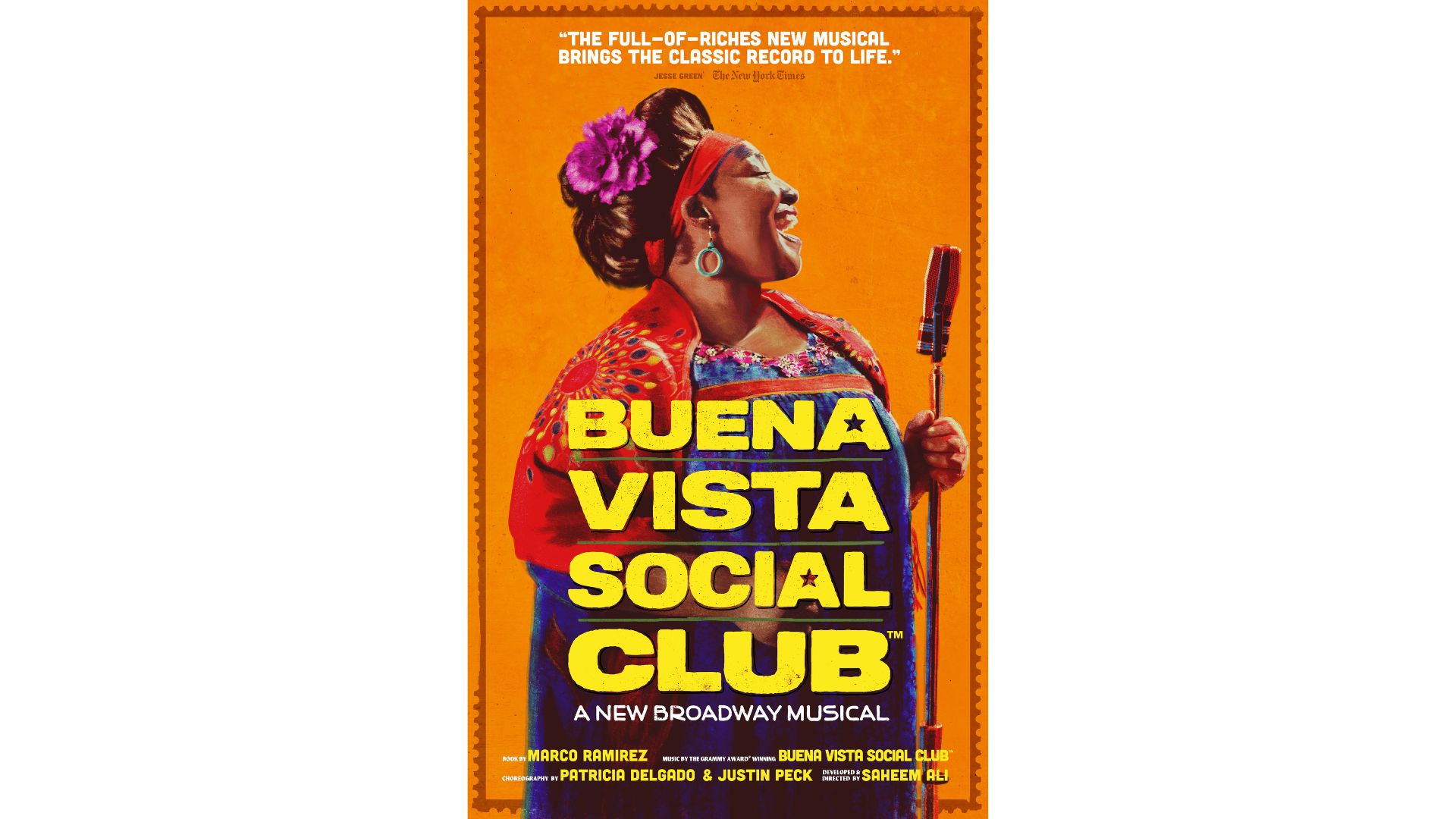In the midst of Broadway news, The Buena Vista Social Club has brought front and center an incredible musically expose for Cuban music and culture to Broadway audiences.
Based on historical events and real-life people, this musical follows the lives of influential Cuban artists who frequented the Havana Clubs. Now, outside of the brilliance that is the artists behind the Buena Vista Social Club, the Broadway Musical features incredible talents and storytellers and diversity at the Gerald Schoenfeld Theatre.
If you are unfamiliar with Natalie Venetia Belcon, first of all, where have you been? And second of all, once you witness her artistry on stage, you will never forget her name again.
Natalie is making her grand return to Broadway after a 10 year hiatus, where she last originated the role of Gary Coleman in the Tony Award winning musical “Avenue Q.” Natalie has filled her time with regional theater, national tours, on camera credits and now gets to utilize her personal experience growing up in a musical home surrounded by Caribbean music and culture that has led her to the amazing performance she has as Omara Portuondo in this semi-biographical fable of Omara’s life and the lives of her artistic collaborators, as Juan de Marcos González, American producer and guitarist Ry Cooder, and British producer and label owner Nick Gold sent an invitation and almost a call to action to celebrate the music created in Havana’s 1950s vintage social clubs to create the titular album, “Buena Vista Social Club.”
We had the Honor of Interviewing Natalie about her return to Broadway, her Musical upbringing, and her experience playing Omara Portuondo in Broadway’s Buena Vista Social Club.
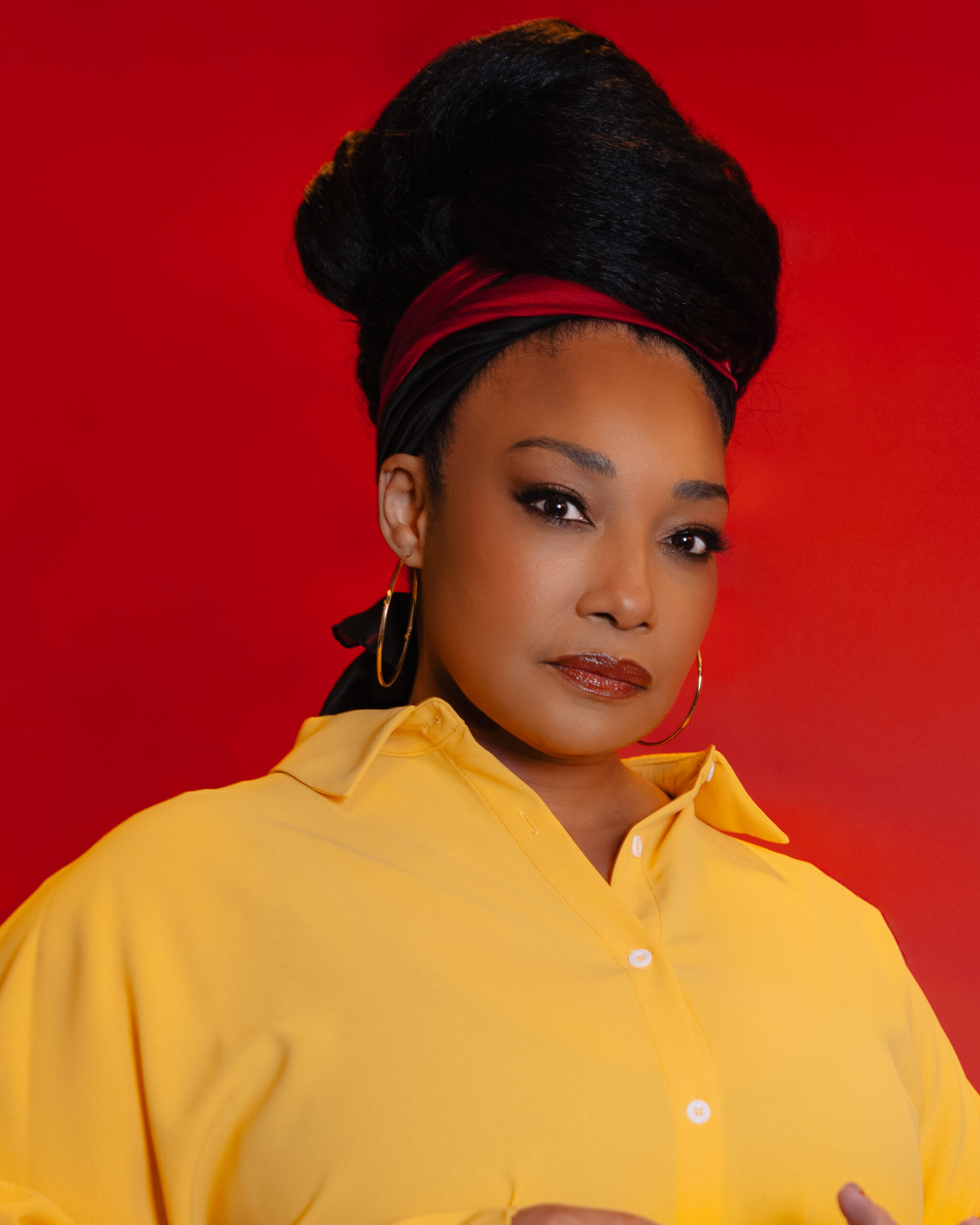
Natalie Venetia Belcon: It is exhilarating. I love the bigger space. I love the changes. It is whatever that word means. I can’t believe it, I can’t believe it. I can’t believe it. Yeah. Every, every show.
The Knockturnal: Your stage presence, your performance is just so absolutely astounding. And the show is so brilliant and so exciting to witness. So you grew up in a very musical family which is very similar to this real life human being named Omara Portuondo. So how has your history, growing up with a musically rooted and explorative childhood, informed your role playing Omara?
Natalie Venetia Belcon: I mean, thank God, it makes it, you know, a smoother transition because I’m not exactly her, but those similarities help. I understand all of it. I understand waking up to music, going to bed with musicians in the house, the band rehearsing, not being able to sleep, not because they’re loud, but because my brother and I are in the room dancing and singing. I understand all of it.
The Knockturnal: Yeah, and how does it feel playing like this real-life iconic musician as well?
Natalie Venetia Belcon: I mean, what can I say? Look. My parents introduced me to this album, so I’m having many experiences just hearing the music every night and then, on top of it, getting to portray our version of Omara. I did make sure that certain things had to be what Omarawass. But it’s beyond words. It’s absolutely beyond words. I mean, what do you say? What do you say? It’s really beyond words.
The Knockturnal: Yeah, I can imagine in theat;r, it’s a gift to have such a person represented with so much respect like this. But also to have so much space for you as an artist to still exist in this world while also being able to, like,ohh, yeah, like I know what that’s like. Oh, I get to tell this part of my story, along with this person. And it’s not anything other than this story and the art that I get to now offer myself to. That’s such an exciting thing.
Natalie Venetia Belcon: No, it’s, it’s, it’s the best of both worlds. It is. It’s the best sandwich you’ve ever had. Ever.
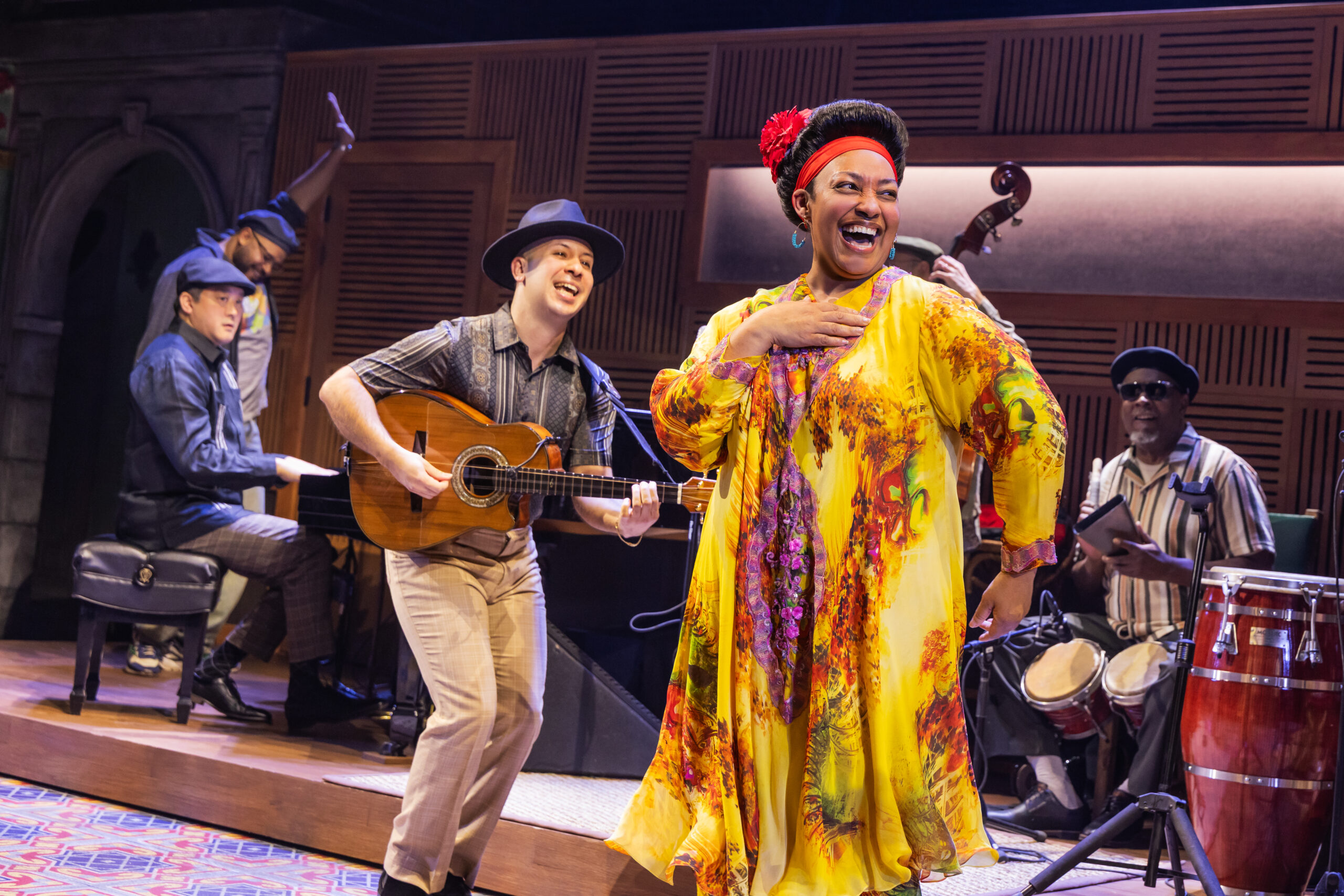
Production Photo by Matthew Murphy
The Knockturnal: Talking about the musical. This role has so much emotional weight to it. Because this character is reuniting with so many people and coming to terms with so much of her past. How do you find yourself being able to kind of navigate that and still be able to take care of the person that you are? Because it feels like the emotional intimacy starts at a seven and eight when you enter the stage. And then it’s just reunion after reunion, constantly. I’m thinking a lot about the balance of emotional exploration as Omara and the balance of Natalie’s emotion.?
Natalie Venetia Belcon: Let me start by saying, and I’ll go back, I am wiped out after every show. It’s a lot. No, I’m tired. Like, I’m tired. You know, I’m sure you had a good cry, whether it was over something good or bad. When you are crying, like a real cry, when you’re done, you’re wiped out. And I’m going through it for two hours. And when I’m off the stage, I have to hold that too. I can’t just go off and start screwing around backstage. So I’m holding that off in a little corner somewhere by myself. It’s exhausting. Okay. That being said, I do have my own experiences that I can bring to the show that help. And then we have the brilliant musicians who, if you just listened to them play,
Then, all you have to do is pay attention to what you’re saying. Right?
And you just follow the bouncing balls. Just follow the little breadcrumbs. Just keep going. Don’t try to make things up that aren’t actually happening.
Like back in the day when I was, like, you know, 13, 14, I went to performing arts, I was an acting major. And they would always say just be. I had a teacher who was always saying just be. Just be there, just be there. Interestingly enough, in college, there was a teacher they called the rhythm teacher. Black woman from Peru. Victoria Santa Cruz, I’ll never forget it. And she would always talk to you and kind of sort of be looking off on the side of you because she could feel all of what you were dealing with that day. All of it. And so one day she’s saying, it’s inside, kids, And it hit me: the connection to the high school thing, just be. And that’s literally what they were saying, Ng is sometimes people are so in their heads trying to concoct a thing. When they just pay attention to what the hell is going on and coming out of your mouth and being said to you, right? Don’t play games when you go off stage; pay attention to the show. You can hear it. Pay attention. Just listen. That’s it. Right? Just be. Feel it inside. And so that’s what I do. That’s it. I mean, it’s exhausting. And that’s what I do, that I have all of those. All of those things help me. The music, the words, my personal experience; I was just talking with someone else and the ghost scene with my sister. I have my memories with my dad. I lost my father. So that’s there for me. That’s actually who I’m talking to during that scene. Just be there one step at a time. One foot in front of the other. Take it one word at a time. Yeah. The person’s talking to you. Just listen to them. Just stand there and listen. Sometimes, they might say it a little differently, right? So it should affect you a little bit differently.
The Knockturnal: That is such a beautiful way of putting that. Thank you so much for sharing all of that and sharing it in that way. It’s so exciting because it is such a huge effort to be genuinely that present and that receptive for the whole show. That’s stamina, like that’s strength: everyone in this show, you don’t feel people tapping out. Everyone was so involved and invested, and they were like holding each other, from the band to the actors to the crew. And then you have the audience offering their attention as well. And like I’m gonna give you the attention ’cause I can tell you’re locked in too. And so it’s this dynamic relationship that also comes, I imagine, with, like, when you’re in a band, when you’re playing live music too, you have to be listening to everybody and like understanding all that as well.
Natalie Venetia Belcon: You have to, and in that situation, you have no choice. You can’t do what you rehearsed in front of a mirror. I grew up singing in a band, and let’s just say scatting, right? And you’re assuming that the musician is going to hit the note you’re used to them hitting, but for whatever reason, feeling or they just didn’t have enough air in that horn that night. You have to be paying attention. You can’t sing that same note because now you both sound like a mess, right? You have to be able to shift the note to make it sound like y’all meant that. We meant to do that, right?
The Knockturnal: And with this show, can I ask, like, what was your journey with it? Like, how did you, how did you get involved with it? Cause it feels like such a perfect match for a performer like you and your skills and experiences.
Natalie Venetia Belcon: So I was on tour with Wicked, and I got a call, and it was Tara Reuben’s office, and Tara Reuben loves me. I always tell people- I always literally always tell people- that even if the character said a 97-year-old Chinese man, Tara Reuben would call me again. I always tell people that I know the girl. So she introduced me to the group, and then I had Zoom auditions until the very last one, the callback, and I came to New York for that. And that was it.
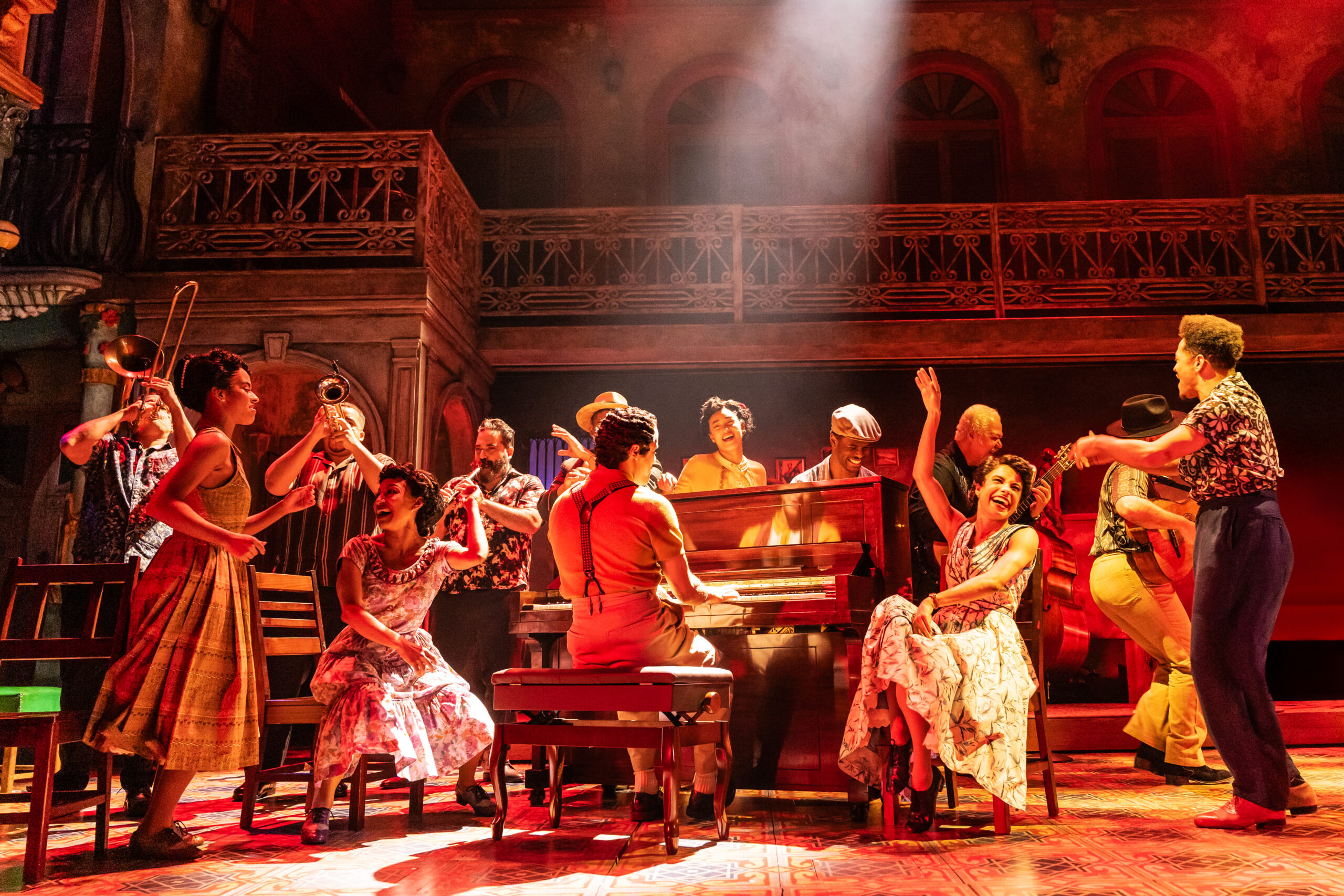
Production Photo by Matthew Murphy
The Knockturnal: Has anything shifted in the show in any noticeable ways that you may miss out on or something that you were like, Ohh I’m so thankful that we made this adjustment.”
Natalie Venetia Belcon: Yeah, I think the cuts and the changes were good. We had a lot of cuts, snips. The one thing that we attempted only once, and I wish they would have worked on it: I wanted a concert at the end. Finally got them to agree to a mini concert. It didn’t happen. I can’t tell you that one of the major questions and complaints from people is “What happened to the concert? In the end, I was waiting to be able to sing and dance along.” People want a concert. I mean, I have a few little things, but that’s the one thing. Well, in 15, 20 years when I direct the redo, right? Don’t forget, don’t forget, don’t forget. That’s the first day of rehearsal. We’re going to just start with the concert. Get that out of the way, OK?
The Knockturnal: An incredible plan. So thankful that I was able to chat with you even when you were feeling so sweet. Your energy was so exciting, and it was a gift to watch the show and watch your performance. I’m grateful for the representation. I’m grateful for the diversity on stage and the diversity in the storytelling and allowing stories to expand past like very commercial musical theater in the way of how we have people telling stories and like who we have telling stories and so I’m very grateful for this show. Thank you.
Natalie Venetia Belcon: That is one of the other things that I always said I didn’t want to do, like Traditional stuff only.
The Knockturnal: This show is incredibly unique and special. Natalie, it was so nice to meet you. Thanks for meeting me, and hopefully see you around the city.
Natalie Venetia Belcon: Right? Hahaha.
Key Art: Polk and Co.
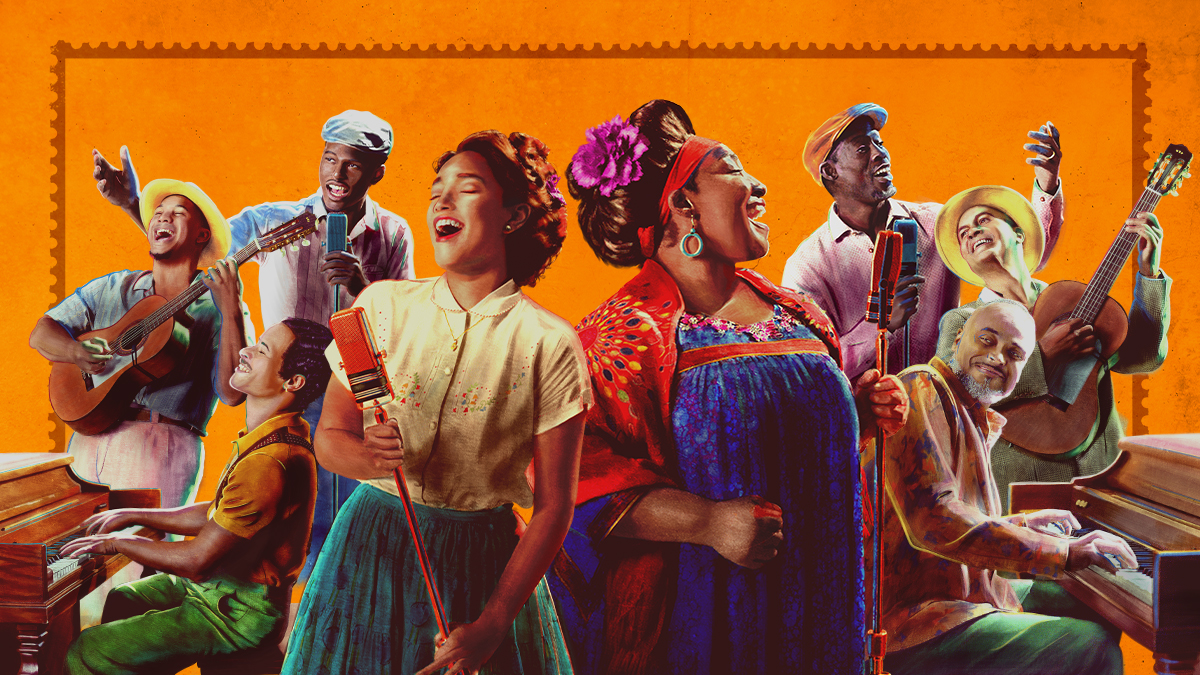
Key Art by Polk and Co.
Buena Vista Social Club, with the book and Marco Ramirez to share the music and story of the Buenva Vista Social Club, directed by Saheem Ali, with choreography by Patricia Delgado and Justin Peck, is playing at the Gerald Schoenfeld Theatre [236 W 45th St New York, NY] — Get your tickets to experience talent beyond belief and Cuban musical history.
